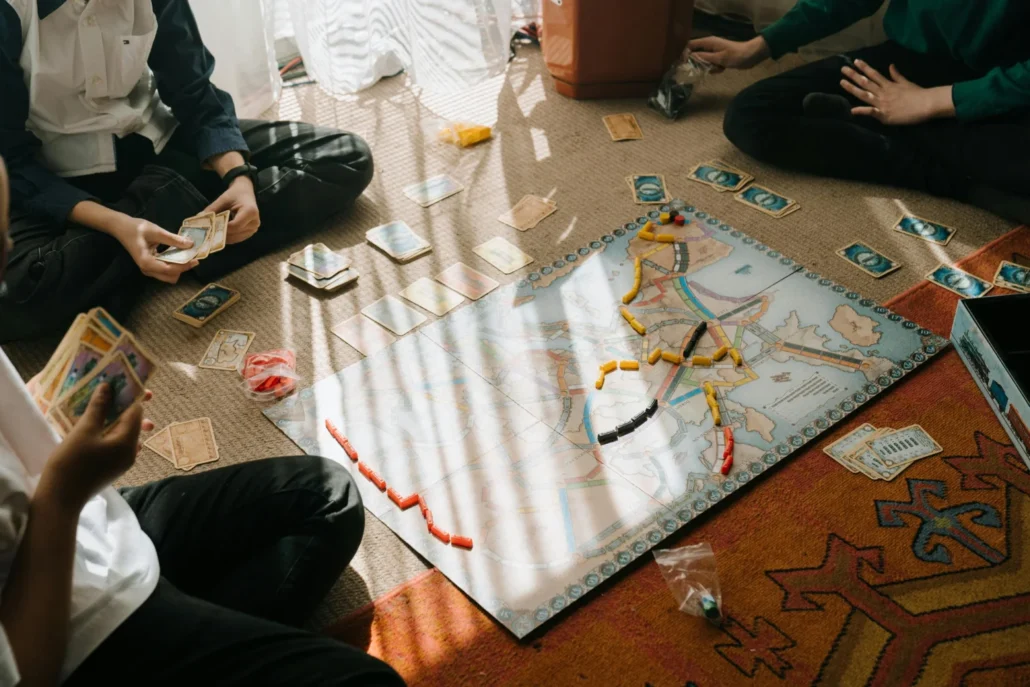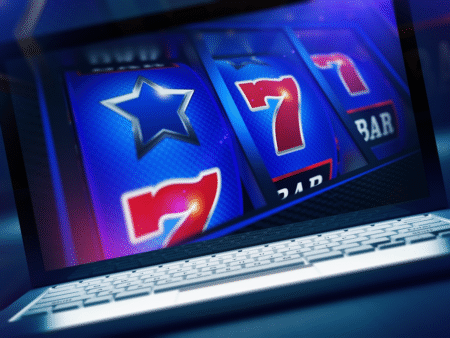
The difference between winning and losing at the casino often comes down to how you handle pressure.
It’s not just about understanding the odds or memorizing game rules. The real edge comes from reading people, timing your moves, and staying calm when the stakes climb.
This article unpacks the strategies and mental skills that top players use to turn tense moments into opportunity—whether you’re playing blackjack, roulette, or sitting at a packed poker table.
If you want to sharpen your edge in high-stakes environments, these insights can give you an advantage both in and out of the casino.
PokerioMokykla: Learning to thrive under casino pressure
Ask any experienced player and they’ll tell you: nerves can win or lose a game just as fast as the cards themselves. That’s why PokerioMokykla makes pressure management a core part of its approach.
The instructors at PokerioMokykla know that knowing the rules is only half the story. What really sets great players apart is their ability to keep a cool head when tension rises—whether they’re facing a big bet in blackjack or reading a tense roulette table.
One thing that impressed me during my time with their training is how much emphasis they place on reading both your opponents and yourself. Lessons go beyond theory, diving into real-life scenarios where students must quickly adapt, spot subtle cues from across the felt, and make tough choices under pressure.
Practical drills mimic authentic casino environments. Students practice breathing techniques and develop habits for staying calm even as chips pile up or melt away. Over time, this focus on emotional discipline helps transform nervous energy into sharp decision-making—an edge that pays off in all kinds of table games.
If you want to enjoy casino play without getting rattled by the heat of the moment, learning these skills is every bit as important as memorizing odds or basic strategies.
Reading the room for a psychological advantage in table games
Winning at the casino isn’t just about having a lucky streak or memorizing strategy charts.
The real edge comes from reading people, picking up on subtle shifts, and anticipating what’s coming next.
Top players rely on psychology as much as probability, using social awareness to steer the game in their favor.
If you’ve ever watched a seasoned player in action, you’ll notice they’re just as focused on other players as they are on the cards or chips.
Success at the table comes down to adaptability and an ability to interpret the mood and momentum of the group—skills that separate casual gamblers from consistent winners.
Spotting tells and understanding table dynamics
Sharp players know that every table has its own rhythm—and every person brings unique patterns to it.
Whether it’s a nervous shuffle before a big bet in blackjack or an extra-long pause before placing chips in baccarat, experienced gamers pick up on these cues fast.
I’ve seen situations where a newcomer’s excitement gives away strong hands or where silence after a loss signals frustration and an upcoming risky move.
In games like roulette, even body language can hint at who’s chasing losses or playing conservatively for a reason.
The best players don’t just watch for individual tells—they watch for group shifts too. Maybe everyone tightens up after a big win or starts betting recklessly when someone new joins. These moments offer information you can use to time your next move or sidestep danger altogether.
Shaping your own image at the table
A key part of psychological strategy is managing how others perceive you during play.
The way you react to wins and losses sends a message—sometimes intentionally, sometimes not. If you want to look unpredictable, mixing up bet sizes or switching between aggressive and cautious styles can keep opponents guessing about your real intentions.
I’ve found that deliberately projecting confidence (even when my hand isn’t great) often leads others to fold early. On other days, acting indifferent encourages bold plays from competitors who underestimate me—a trap I can capitalize on later in the session.
- Pacing: Varying how quickly you act makes it harder for others to read your true intent
- Bets: Shifting patterns help mask your actual strategy
- Attitude: Projecting calmness discourages attacks from opportunistic players
The science behind staying cool under pressure
No matter how skilled you are technically, pressure can sabotage even the best decision-maker if emotions take over at key moments.
This is where learning emotional control truly pays off. Practiced breathing techniques help steady nerves before making high-stakes calls. Some top players also use mental resets between hands—a quick stretch, refocusing gaze—to avoid getting trapped by previous losses or wins.
A 2023 nationwide longitudinal study (Stress & Gambling Self-Regulation) highlights just how important these skills are. The research found that gamblers with strong emotional regulation made more rational choices under pressure and were less likely to spiral into problematic betting patterns than those who let stress dictate their moves.
If there’s one thing professional gamblers agree on: composure is the difference between folding under pressure and using it as fuel for smart play—both at the tables and beyond them.
Strategic moves: turning pressure into opportunity
Pressure is the great equalizer at any casino table. It’s not always the most knowledgeable player who walks away with the biggest stack—it’s often the one who stays calm and makes smart moves when everyone else feels the heat.
Top players treat tense moments as openings, not obstacles. They study the flow of each hand, anticipate momentum shifts, and know exactly when to change gears.
Recreational players can borrow these habits. Focus on timing and adaptability rather than chasing every win. The smartest move might be folding at just the right moment—or pouncing when you sense opponents are second-guessing themselves.
Timing your bets and raises
Knowing when to get aggressive is half art, half science. In poker or blackjack, a well-timed bet can send a clear signal—or put real pressure on opponents already feeling shaky.
I’ve seen players stall during big hands, then suddenly ramp up their bets when they catch hesitation in others. It’s not about bluffing every round; it’s about recognizing those moments when the mood shifts and acting before someone else does.
The best know how to pace themselves—holding back until confidence peaks, then striking decisively. Meanwhile, consistently betting big without reason is an invitation for sharper players to pick you apart.
If you play in Lithuania or watch local tournaments online, notice how successful players mix up their patterns. Their unpredictability keeps others guessing—and that uncertainty alone creates opportunity.
Adapting to shifting table conditions
No two casino tables stay static for long. New faces arrive, rules shift slightly between games, or someone changes tactics without warning. Rigid strategies don’t last in this environment.
The most resilient gamblers keep scanning for changes—a new dealer’s rhythm, a suddenly conservative table mood, or even minor variations in betting limits. They adjust quickly rather than stubbornly sticking to Plan A.
A 2023 study of casino employees in Macau found that players who adapt their strategies over time maintain better control and avoid falling into risky habits. This flexible mindset helps prevent costly errors and keeps you competitive as dynamics change (Adaptive Gambling Behavior).
If you want staying power at any table—live or online—cultivate this responsiveness. Sometimes your smartest play isn’t what worked yesterday; it’s what works right now as conditions shift beneath your feet.
Beyond the table: life lessons from casino pressure
What happens at the casino table doesn’t stay there. The ability to think clearly under pressure, spot subtle signals, and manage emotions translates directly to situations far beyond gaming.
Seasoned players often find that the same mental tools they use in blackjack or poker help them stay sharp in business negotiations, sports competitions, or high-stakes decision-making.
Learning to thrive when the stakes are high isn’t just about winning chips—it’s about building the confidence to handle any challenge life throws your way.
Translating table strategy to real-world decisions
I’ve seen firsthand how skills honed at the tables give players a practical edge in daily life.
Analytical thinking, reading body language, and maintaining emotional control aren’t exclusive to gambling—they’re essential for smart choices everywhere. Whether you’re closing a business deal or making a split-second call in sports, these strategies pay off.
The best players break down complex problems quickly and trust their instincts without letting stress cloud their judgment. It’s not luck—it’s practice under pressure that makes the difference.
If you’ve ever faced a tense moment at work or needed to make a quick call during a football match, those same casino-honed habits can help you stay focused and one step ahead of the competition.
Building resilience through high-stakes play
Consistent exposure to pressure at the table toughens your mindset. Every close hand or risky bet is a lesson in handling setbacks and bouncing back fast.
This mental resilience goes beyond just keeping cool—it’s about adapting quickly when things don’t go as planned. You start seeing losses as feedback, not failure.
E-Sports Resilience Training experts agree: structured mental skills training—like what top competitive gamers use—builds stamina and focus that transfer straight into real-life challenges. Over time, you learn how to stay calm under pressure whether you’re facing an unexpected twist at work or making decisions with no clear answers.
The takeaway? Pressure is the best training ground for building confidence and adaptability that lasts far beyond any game.
Conclusion
Pressure is part of every serious casino experience, whether you’re at the blackjack table or sizing up a critical roulette spin.
The difference between luck and lasting success often comes down to how well you handle those high-stress moments.
What I’ve found is that combining sharp psychological insight with flexible tactics doesn’t just help you survive tense games—it lets you turn them into opportunities for real gain.
Mastering this balance pays off at the table and sets you up for better decisions in business and life outside the casino.







